(Entry into force on: 5 March, 2002)
An Act to make provisions for the Inspectorate of Government in line with Chapter Thirteen of the Constitution and in particular to give effect to the provisions of that Chapter as required by articles 225, 226 and 232 of the Constitution, to repeal the Inspectorate of Government Statute, 1988 and to provide for other related matters.
1. This Act may be cited as the Inspectorate of Government Act,2002.
2. In this Act, unless the context otherwise requires –
“Appointments board” means the Appointments Board established under Section 7 of this Act;
“Authority” means an Authority by whatever name called, established by the Constitution or any other law;
“Board” means the Appointments Board;
“Corruption” means the abuse of public office for private gain and includes but is not limited to embezzlement, bribery, nepotism, influence peddling, theft of public funds or assets, fraud, forgery, causing financial or property loss and false accounting in public affairs;
“Currency point” has the value given to it in the First Schedule to this Act;
“Deputy Inspector-General” means a Deputy Inspector-General of Government referred to in section 3 of this Act;
Short title
Interpretation
“Inspector-General” means the Inspector-General of Government appointed under Section 3 of this Act and includes a Deputy Inspector-General;
“Minister” means the Minister to whom the functions of a
Part II – The inspectorate of government
3 (1) There shall be an Inspectorate of Government.
(2) The Inspectorate shall consist of-
(a) the Inspector-General of Government; and
(b) two Deputy Inspectors-General.
(3) At least one of the persons referred to in subsection (2) of this section shall be a person qualified to be appointed a Judge of the High Court.
(4) A person shall not be eligible for appointment as Inspector-General or Deputy Inspector-General unless that person-
(a) is a citizen of Uganda;
(b) is a person of high moral character and proven integrity; and
(c) possesses considerable experience and demonstrated competence and is of high calibre in the conduct of public affairs.
(5) A person shall resign his or her office on appointment as an Inspector-General or a Deputy Inspector-General if that person is-
(a) a member of Parliament;
(b) a member of a Local Government Council; or
(c) a member of the executive of a political party or organisation
The Inspectorate
“Inspectorate” means the Inspectorate of Government established under Article 223 of the Constitution.
4. (1) The Inspector-General and a Deputy Inspector-General shall be appointed by the President with the approval of Parliament and shall not, while holding office, hold any other office of emolument in the public office.
Appointment of members of Inspectorate
subject to the Constitution be a public office.
(3) The Inspector-General and a Deputy Inspector-General shall hold office for a term of four years but shall be eligible for re-appointment only once.
(4) The remuneration and other conditions of service of members of the Inspectorate shall be determined by Parliament and the salaries and allowances of members of the Inspectorate shall be charged on the Consolidated Fund.
5. (1) The Inspector-General or a Deputy Inspector-General may be removed from office by the President on the recommendation of a special tribunal constituted by Parliament only for-
(a) inability to perform the functions of his or her office arising from infirmity of body or mind; or
(b) misconduct, misbehaviour or conduct unbecoming of the holder of the office; or
(c) incompetence
(2) The special tribunal referred to under sub-section (1) shall consist of a Justice of the Supreme Court, who shall be the Chairperson and two other persons, all of whom shall be
appointed by Parliament.
(3)On receiving complaints about the Inspector-General or the Deputy Inspector-General, the President shall refer the matter to Parliament to constitute the special tribunal to investigate the matter.
(4) The President shall remove the Inspector-General or Deputy Inspector-General if the special tribunal recommends that the Inspector-General or Deputy Inspector-General ought to be removed from office on any of the grounds under subsection (1).
Removal of Inspector-General and Deputy Inspector-General
(2) For the avoidance of doubt, the Inspectorate shall,
(6) A suspension under sub-section (5) shall cease to have effect if the special tribunal advises the President that the officer should not be removed from office.
6. (1) A person appointed Inspector-General or Deputy Inspector-General shall, before assuming the duties of his or her office, take and subscribe the oath specified in Part A of the Second Schedule to this Act.
(2) The oath shall be administered by the President.
7. (1) There is established an Appointments Board consisting of the following-
(a) the Inspector-General who shall be the Chairperson of the Board;
(b) every Deputy Inspector-General;
(c) the Secretary;
(d) the Chairperson of the Public Service Commission or a member of that Commission authorised by the Chairperson in writing;
(e) the Permanent Secretary of the Ministry responsible for the public service; and
(f) two other members appointed by the President one of whom shall be a woman.
(2) The functions of the Appointments Board shall include-
(a) the establishment of posts within the Inspectorate;
(b) the appointment in accordance with section 16 of this Act;
(c) the making of regulations for the discipline of officers and other employees of the Inspectorate; and
(d) the performance of any other functions that Parliament may by resolution assign to the Board.
(3) The staff shall be appointed on the basis of their integrity and competence.
Oath of members of Inspectorate Appointments Board
(5) If the question of removing the Inspector-General or Deputy Inspector General is referred to the special tribunal, the President shall suspend the Inspector-General or Deputy Inspector-General from performing the functions of his or her office pending the investigations.
Part III – Functions of inspectorate
8. (1) Pursuant to the provisions of the Constitution and to this Act, the functions of the Inspectorate are-
(a) to promote and foster strict adherence to the rule of law and principles of natural justice in administration;
(b) to eliminate and foster the elimination of corruption, abuse of authority and of public office;
(c) to promote fair, efficient and good governance in public offices;
(d) to enforce the Leadership Code of Conduct;
(e) to investigate any act, omission, advice, decision or recommendation by a public officer or any other authority to which this section applies, taken, made, given or done in exercise for administrative functions;
(f) to stimulate public awareness bout the values of constitutionalism in general and the activities of its office, in particular, through any media and other means it considers appropriate;
(g) to inquire into the methods by which law enforcing agents and the state security agencies execute their functions, and the extent to which the practices and procedures
employed in the execution of such functions uphold, encourage or interfere with the rules .of law in Uganda;
(h) to investigate the conduct of any public officer which may be connected with or conducive to-
(i) the abuse of his or her office or authority;
(ii) the neglect of his or her official duties;
(iii) economic malpractices by the officer;
Functions of Inspectorate
(i) to take necessary measures for the detection and prevention of corruption in public offices and in particular-
(i) to examine the practices and procedures of those offices in order to facilitate the discovery of corrupt practices and to secure the revision of methods of work or procedure which, in the opinion of the Inspectorate may be conducive to corrupt practices;
(ii) to advise those offices on ways and means of preventing corrupt practices and on methods of work or procedure conducive to the effective performance of their duties and which, in the opinion of the Inspector-General, would reduce the incidence of corruption;
(iii) to disseminate information on the evil and dangerous effects of corruption on society;
(iv) to enlist and foster public complaints of alleged or suspected corrupt practices and injustices and make recommendations for appropriate action on them ; and
(j) to perform any other functions that Parliament may prescribe.
(2) The Inspectorate may investigate any matter referred to in sub-section (1) of this section, on its own initiative or upon complaint made to it by any individual or body of persons whether corporate or not and whether or not that individual or body has suffered any injustice by reason of that matter.
(3) The Inspectorate may, in the performance of its duties under this section, investigate into the actions of any person that may have been done while that person was serving in a public office, notwithstanding that at the time of the investigation, that person has ceased to serve in that office.
(4) The Inspectorate may in the performance of its functions under this Act delegate any of its functions to other authorities or persons at district or lower levels including any local government.
9. The jurisdiction of the Inspectorate shall cover officers and leaders serving in the following offices.
Jurisdiction of Inspectorate
(a) a government department; undertaking or service;
(b) a statutory corporation or authority;
(c) the Cabinet;
(d) Parliament;
(e) a Court of law;
(f) the Uganda Police Force;
(g) the Uganda Prison Force;
(h) a government aided school, college or other institution of learning that accesses public funds;
(i) the Uganda Peoples’ Defense Forces;
(j) the Local Defense Forces;
(k) a local government council or local government unit or a committee of such council or unit;
(l) a council, boards, society or committee established by law for the control and regulation of any profession;
(m) a public commission, association or similar body whether corporate or not, established by or under any law;
(n) national security organisations including Internal Security Organisation ISO;
(o) any other, office or body that administers public funds on behalf of the public.
10. The Inspectorate shall be independent i the performance of its functions and shall not be subject to the direction or control of any person or authority and shall only be responsible to Parliament
11. The Inspectorate may establish branches at district and other administrative levels as it considers fit for the better performance of its functions.
12. For the purposes of performing its functions under this Act, the Inspectorate shall have the following powers-
(a) to authorise in writing any officer under its charges to conduct an inquiry or investigation into an allegation of corruption, abuse of office and neglect of duty, and any
other aspect that the Inspectorate is empowered to investigate into;
(b) to require a public officer or any other person to answer questions concerning his or her duties or those of another person;
(c) to require any person in charge of a public office to produce or furnish within a specified time, any document or certified true copy of such document which is in his or her possession or under his or her charge; and
(d) to do any other thing necessary for the performance of the functions of the inspectorate under this Act.
13. (1) Subject to the provisions of any law, the Inspectorate shall have power to enter and inspect the premises or property of any department of Government, person or of any authority; to call for, examine and where necessary, retain any document or item in connection with the case being investigated, found on the premises; and may, in those premises, carry out any investigation for the purpose of its functions.
(2) Without prejudice to the powers of the Inspectorate specified in section 12 of this Act, the Inspector-General, the Deputy Inspector-General or any other officer or person authorised by the Inspector-General or Deputy Inspector-General for the purpose, shall,
in the performance of their functions under this Act-
Independence of Inspectorate Branches of Inspectorate General powers of Inspectorate Powers of access and search
(a) search any person and retain any document or item in connection with the matter being investigated found with or on him or her;
(b) have access to all books, returns, reports and other documents relating to the work in any public office;
(c) at any time have access to and be able to search the premises of any public office, or of any vessel, aircraft or other vehicles, if there is reason to suspect that property corruptly or otherwise unlawfully acquired has been placed, deposited or concealed in it.
(3) An officer or person conducting a search under subsection (1) of this section shall only do so on the express instruction of the Inspector-General or a Deputy Inspector- General who shall issue a search warrant to that effect, in Form 1 specified in the Third Schedule to this Act.
(4) For the purpose of exercising his or her powers of access and search under subsection (1) of this section, the Inspector-General, the Deputy Inspector-General or any other officer or person authorised for the purpose may use such reasonable force as may be necessary in the circumstances and may be accompanied or assisted by such other law enforcement officers as he or she considers necessary to assist him or her to enter into or upon the premises, vessel, aircraft or vehicle, as the case may be.
(5) Notwithstanding any other provision of this section, where the President certifies that the entry upon or inspection of any premises, vessel, aircraft or vehicle-
(a) might prejudice the security, defence or international relations of Uganda or the investigation or detection of any offence; or
(b) might involve the disclosure of the deliberations of the Cabinet or committee of the Cabinet relating to matters of a secret or confidential nature and would be injurious to the public interest, the Inspectorate shall not exercise its powers of access and search with respect to the premises, vessel, aircraft or vehicle.
14. (1) The Inspector-General or a Deputy Inspector-General may, by order signed by him or her authorise an officer of the Inspectorate or any other competent person under the control of the Inspectorate to investigate any bank account, purchase account, share account, expense account or any other account, or any safe or deposit box in a bank, or any transaction for the purposes of this Act.
(2) An order made under subsection (1) of this section shall be sufficient authority for the disclosure or production by any person of information, accounts, documents or articles as may be required by the officer and the collection and taking of any oral and documentary evidence by the authorised officer or person.
(3) An order made under this section may direct the suspension of all operations in respect of the account against the holder of the account or any other person or the stopping of any transaction subject to such conditions as the Inspector-General or Deputy Inspector-General may specify.
(4) Any person who wilfully and unlawfully refuses to comply with an order issued under this section, commits an offence and is liable on conviction, to a fine not exceeding one hundred fifty currency points or imprisonment not exceeding three years or both.
(5) The Inspectorate shall have power to investigate, cause investigation, arrest, cause arrest, prosecute or cause prosecution in respect of cases involving corruption, abuse of authority or of public office.
(6) The Inspector-General may, during the course of his or her duties or as a consequence of his or her findings, make such orders and give such directions as are necessary and appropriate in the circumstances.
(7) The Inspectorate shall, when enforcing the Leadership Code of Conduct, have all the powers conferred on it by this Act in addition to any other powers conferred by law.
(8) Notwithstanding any law, the Inspectorate shall not require the consent or approval of any person or authority to prosecute, or discontinue proceedings instituted by the Inspectorate.
(9) In all cases prosecuted by the Inspector-General of Government, he or she shall exercise the same powers of appeal as exercised by the Director of Public Prosecutions.
Special powers of Inspectorate
Part IV – Secretary and other staff of inspectorate
15. (1) The Inspectorate shall have a Secretary who shall be appointed by the President acting on the advise fo the Public Service Commission and shall hold office upon such terms and conditions as are applicable to a Permanent Secretary.
(2) The Secretary shall be a person qualified to be appointed to the office of Permanent Secretary.
(3) The Secretary shall, subject to subsection (4) of section 31 of this Act and to the general control of the Inspectorate-
(a) be responsible for giving effect to the policy decisions of the Inspectorate and the day to day administration and management of the affairs of the Inspectorate and the control of the other staff of the Inspectorate.
(b) be responsible for arranging the business for and the recording and keeping of the minutes of all decisions and proceedings of the Inspectorate at its meetings; and
(c) perform any other function assigned to him or her by the Inspector General.
16. (1) The Inspectorate shall have such other officers and employees as may be necessary for the efficient and effective performance of its functions under this Act.
(2) All officers and employees of the Inspectorate other than the Secretary shall be appointed by the Board upon such terms and conditions as the Board may determine.
(3) The Inspectorate may in the performance of its functions under this Act and on such terms and conditions as the Inspectorate may determine, engage the services of or work in consultation with professional or technical experts or consultants whether in the public service or not, to enhance the performance of the Inspectorate.
Secretary to Inspectorate Other staff
17. (1) The Secretary and any other officer or employee of the Inspectorate shall, before assuming the duties of his or her office, take and subscribe the oath set out in Part B of the Second Schedule of this Act.
Part V – Procedure for investigations
18. (1) The Inspectorate may, by statutory instrument signed by the Inspector-General prescribe rules of procedure generally for the conduct of investigations and for any matter that is necessary for the efficient performance of the functions of the Inspectorate under this Act.
(2) In particular but without prejudice to the general effect of subsection (1), rules made under this section may prescribe fees in respect of anything to be done under this Act and also forms to be used in connection with the functions of the Inspectorate under this Act or under Chapter Thirteen of the Constitution.
19. (1) The Inspectorate shall not have power to question or review any of the following matters-
(a) the decision of any court of law or of any judicial officer in the exercise of his or her judicial functions;
(b) the decision of any tribunal established by law in the exercise of its functions;
(c) any civil matter which is before court at the commencement of the Inspectorate’s investigations;
(d) any matter relating to the exercise of the prerogative of mercy; or
(e) any matter the review or investigation of which has been certified by the President as likely to-
(i) be prejudicial to the security, defence or international relations of Uganda; or
(ii) involve the disclosure of proceedings and deliberations of the Cabinet or a Committee of Cabinet relating to matters of a secret or confidential nature and would be injurious to the public interest.
Secretary and other staff Rules of procedure Limitation on investigations by Inspectorate
(2) Where the Inspectorate is satisfied that-
(a) the complainant has at any material time had the right or opportunity of obtaining relief or redress by means of-
(i) an application or representation to any executive authority; or
(ii) an application, appeal, reference or review to or before a tribunal established by law; or
(iii) proceedings in a court of law;
(b) the complaint is trivial, frivolous, vexatious or not made in good faith; or
(c) the investigation would be unnecessary, improper or futile, the Inspectorate may decline to conduct an investigation and accordingly inform the complainant in writing, but the Inspectorate shall not be bound to give any reasons for the decision.
20. (1) The procedure for conducting an investigation shall be such as the Inspectorate considers appropriate in the circumstances of each case, and without prejudice to the generality of the foregoing, the Inspectorate may obtain information from such person and in such manner, and make such inquiries as it considers necessary.
(2) An official or other agent of the Inspectorate shall not communicate or divulge to any person any information which has come to his or her knowledge in the course or her duties, otherwise than in the performance of his or her duties under this Act.
(3) No person who is not an official or other agent of the Inspectorate shall communicate or divulge to any person any information referred to in subsection (2) of this section except with the approval of the Inspectorate or when ordered by a court or when otherwise required or authorised by law.
(4) A person who contravenes subsection (2) or (3) of this section commits an offence and is liable on conviction, to a fine not exceeding fifty currency points or imprisonment not exceeding twelve months or both.
Conduct of investigations
21. Proceedings, findings, recommendations, investigations or inquiries by the Office of the Inspector-General shall not be held null and void by reason only of informality or irregularity in the procedure and shall not be liable to be challenged, reviewed, quashed or called in question in any court of law.
22.(1) No proceedings, whether civil or criminal, shall lie against the Inspector-General, Deputy Inspector-General, an officer or any other person employed or authorised to execute the orders or warrants of the Inspectorate for anything done in good faith and in the course of the performance of his or her duties under this Act.
(2) Subject to the provisions of this Act, no officer or person serving in the Inspectorate shall be compelled to give evidence before any court or tribunal in respect of anything coming to his or her knowledge by virtue of his or her service.
23. Subject to any other law which enjoins the disclosure of classified information, anything said, information supplied, document, paper or thing produced in the course of an inquiry under this Act shall be privileged in the same manner as if the inquiry were a proceeding in a court of law, and a report of the Inspectorate shall be privileged in the same manner as if it were a record and judgment of a proceeding in court.
Part VI – Investigations
24. (1) A complaint or allegation under this Act may be made by an individual or by anybody of persons whether corporate or not, and shall be strictly confidential and addressed to the Inspector-General.
(2) Notwithstanding the provisions of any written law, where a prisoner, or an employee in a public office, makes an allegation or complaint to the Inspectorate under this Act, the allegation or complaint shall not be made through, subject to the scrutiny of the prison officials or the immediate supervisor or employer as the case may be.
(3) A complaint or allegation made under this Act shall be-
(a) made by the complainant or by his or her legal representative
Effect of findings and recommendations of Inspectorate Immunity of officers Privilege of Information Provisions relating to complaints
(4) No complaint or allegation shall be received by the Inspectorate unless it is made within a period of two years from the date on which the facts giving rise to the complaint or allegation arose; except that in exceptional circumstances and in his or her discretion,
the Inspector-General or Deputy Inspector-General may direct that a complaint or allegation lodged after the specified period shall be received.
(5) Subsections (3) and (4) of this section shall not apply to a complaint or allegation relating to a criminal offence.
25. (1) Except as provided in subsections (2) and (3) of this section, no person shall, as of right, be entitled to be heard before the Inspectorate.
(2) Where the Inspectorate conducts an investigation as a result of a complaint or allegation under this Act, the Inspectorate shall give the head of the public office concerned and any other person who is the subject of the complaint or allegation, an
opportunity to reply to the complaint or allegation made against him or her.
(3) No matter that is adverse to any person, or public office shall be included in a report of the Inspectorate unless the person or head of that office has been given a prior hearing.
26. (1) Subject to this Act, the Inspectorate may-
(a) summon any person who in the opinion of the Inspectorate is able to give information relating to any matter relevant to the inquiry being conducted by it, to appear before the Inspectorate and to furnish such information and produce any documents, papers or things that may be in the possession or under the control of that person; and
(b) by order in writing, summon that person to attend before the Inspectorate at a specified time and place and to be examined on oath.
Right to be heard Procuring information and attendance of witnesses
(b) in writing and addressed to the Inspector-General except where the complainant cannot write, in which case the Inspectorate shall cause the oral complaint to be translated into a written one; and
(c) signed or thumb printed by the complainant.
27. (1) Where a person on whom a summon under section 26 of this Act has been duly served does not attend at the specified time and place, and the Inspectorate is satisfied that-
(a) the summon was properly and duly served; and
(b) the person to whom the summon was directed wilfully and without lawful justification avoided service; the Inspectorate may issue a warrant of arrest in Form 6 specified in the
Third Schedule to this Act, to be executed by an officer of the Inspectorate or a police officer, to apprehend that person and bring him or her before the Inspectorate at a specified time and place.
(2) A person apprehended under subsection (1) shall, within twenty-four hours of his or her arrest or soon thereafter as is practicable, be brought before the Inspectorate.
28. The Inspectorate may pay to any person summoned before it under this Act, such allowances or sums in respect of expenses properly incurred by that person as the Inspectorate may consider appropriate.
Part VII – Reports
29. (1) The Inspectorate shall submit to Parliament at least once in every six months, a report on the performance of its functions, making such recommendations as it considers necessary and containing such information as Parliament may require.
Failure of witnesses to attend Witness allowance
(2) The oath referred to in subsection (1) shall be in Form 4 specified in the Third Schedule to this Act.
(3) Where a person is to be examined on oath under this section, any officer duly authorised by the Inspectorate may administer that oath.
(5) A summon issued under this section shall be served on the person to whom it is directed, by an officer from the Inspectorate or by a police officer, in the manner prescribed for the service of a witness summons in civil proceedings before a court of laws.
Reports of Inspectorate
(2) A copy of the report referred to in subsection (1) of this section shall be forwarded by the Inspectorate to the President; and where any matter contained in the report relates to the administration of any local authority, an extract of the portion of the report on the matter shall be forwarded to that local authority.
(3) The Speaker shall lay before Parliament any report submitted under subsection (1) of this section within thirty days after it has been submitted, if Parliament is then in session, or if Parliament is not in session, within thirty days after the commencement of its next following sessions.
30. (1) Upon receipt of a report under section 29 of this Act, Parliament may take or cause to be taken such action it as it may consider appropriate.
(2) Upon receipt of a copy of a report of the Inspectorate under section 29 the President may take or cause to be taken against the public officer or other person in respect of whom the report is mad such action as may be taken under or in accordance with any written law.
Part VIII – General
31. (1) Parliament shall ensure that adequate resources and facilities are provided to the Inspectorate to enable it to perform its functions effectively.
(2) Subject to clause (8) of article 223 of the Constitution, the Inspectorate shall have an independent budget appropriated by Parliament, and controlled by the Inspectorate.
(3) The budget of the Inspectorate shall cover the salaries and allowances of the Secretary and other staff of the Inspectorate, the expenses of running the headquarters and branches of the Inspectorate and such other expenses of or connected with the operations of the
Inspectorate as Parliament may approve.
(4) The budget shall be prepared annually by the Secretary and upon approval by the Inspectorate, it shall be submitted to Parliament for its approval under article 229 of the Constitution.
Action on report Resources of Inspectorate
(5) Upon approval of the budget by Parliament, the moneys approved in the budget shall be charged on the Consolidated Fund.
(6) The funds of the Inspectorate may, with the approval of the Minister responsible for finance, include grants and donations to enable the Inspectorate to discharge its functions effectively.
(7) Subject to article 229 of the Constitution, all funds provided to the Inspectorate under this Act shall be administered and controlled by the Secretary who shall be the accounting officer in accordance with the Public Finance act.
32. Subject to this Act, where any instrument or document is required or authorised to be issued by the Inspectorate or any act is required or authorised to be done by the Inspectorate in the performance of its functions under this Act, the instrument or
document or act may be signed, executed or done by the Inspector-General or a Deputy Inspector-General or by any person authorised in writing by the Inspector-General or by a Deputy Inspector-General.
33. The Inspectorate shall have a seal which shall be in such form as the Inspectorate may determine and shall, subject to the provisions of any law, be applied in such circumstances as the Inspectorate may determine.
34. (1) A person who provides information to the Inspectorate shall be protected and his or her identify shall not be disclosed and may be rewarded for his or her information and paid an amount of five percent of the money recovered consequent upon his or her



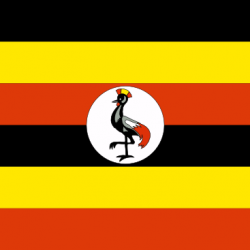
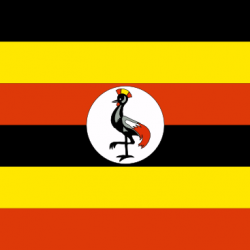
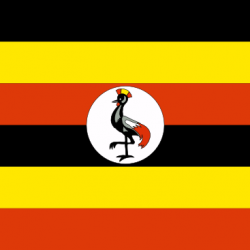
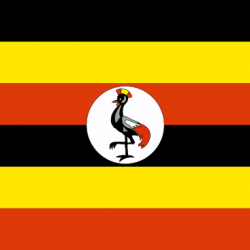
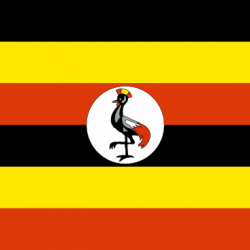
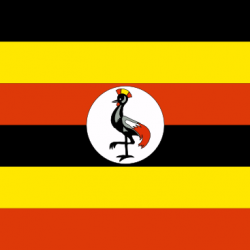
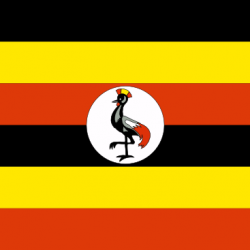
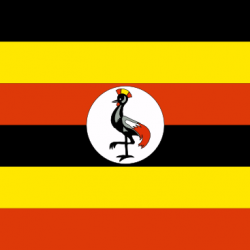
 We will not leak your personal information
We will not leak your personal information